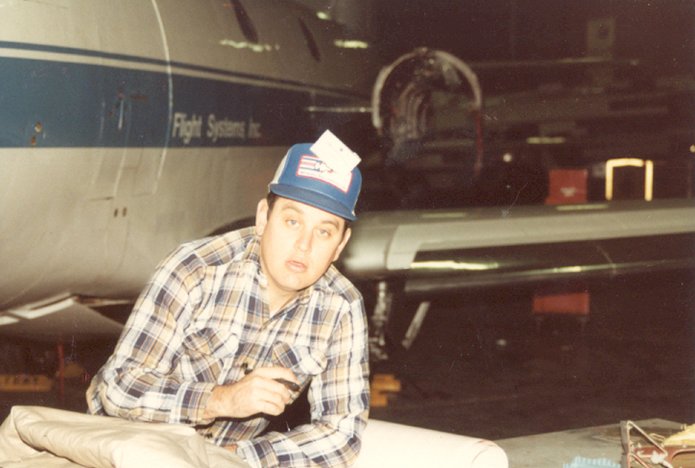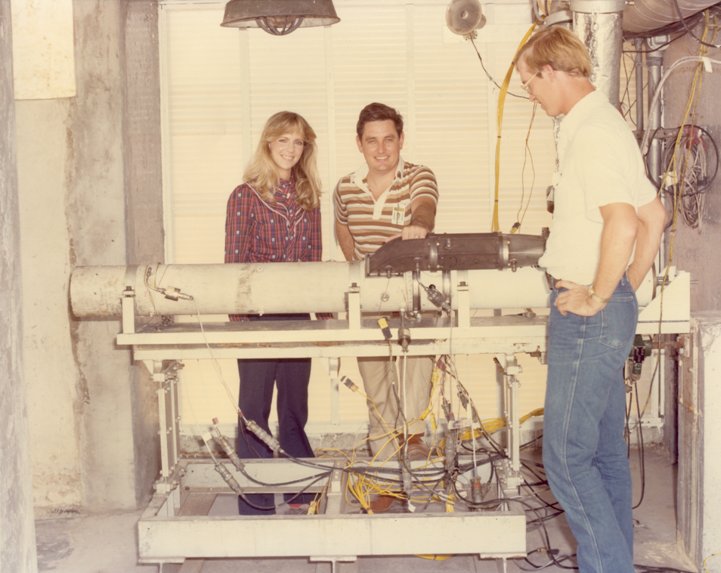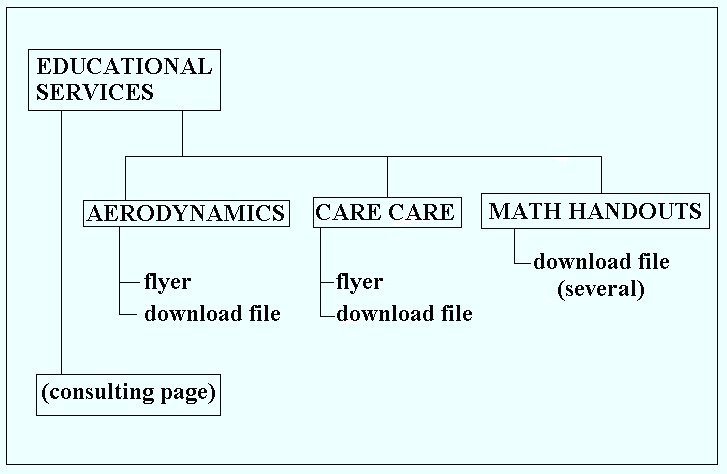A little background: Before permanently entering professional teaching, GW worked in defense weapons
engineering development for over 19 years, and in civilian engineering for over 3 years. In that work,
he taught several young engineers and technicians on-the-job how to do things that are still not in the
textbooks.
Lots of folks talk about “rocket science”. Well, GW actually did it for a living, and he says it’s less
science than it is art. In fact, rocket “science” is about 40% science (which can actually be written down,
and also can be learned from those writings), 50% art (that disappears with the loss of the employees who
practiced it, and is passed on master-to-apprentice), and 10% blind dumb luck (self-explanatory). And that’s
in production! There’s a lot more art and luck than science in development work, which is mostly what GW
did during his defense engineering career.
While at Tracor, GW got to work on things to keep aircraft from getting shot down, instead of on the weapons
that shoot aircraft down. So, he has experience “on both sides of the street”. Some of that Tracor experience
involved flight testing. That kind of activity generally involved bad weather, 16 hour days, and travel to
distant locations. You can see the cumulative effects of that in his expression, in the Tracor picture below.

GW working on decoy flight testing for Tracor, at Flight Systems, circa 1985.
 GW (center) and two colleagues on the ramjet test stand at Hercules, circa 1982.
GW (center) and two colleagues on the ramjet test stand at Hercules, circa 1982.
In contrast, the weapons work at Rocketdyne/Hercules was not generally quite so grueling, although there
were exceptions. In the Hercules test stand picture just above, GW and his colleagues look fairly rested
and relaxed. Appearances can be deceptive: in the early subscale work leading to the pictured test, it
was necessary for GW to stand outside the protective bunker, and experience the test with all 5 senses.
This provided an understanding of what was actually going on inside the ramjet engine, unlike anyone else
in the industry.
These observations were made 75 feet from the test stand, without any protection. Over the course of 8
years, GW witnessed 120 experimental development tests this way. On many occasions, various colleagues
stood there with him, too. Over that time, he saw 4 test articles blow up. GW says when that happens,
“First you say it, then you do it, and then you turn and run”, even though intellectually you know the
danger is already past. And so he did, 4 times. So also did those standing there with him! Tough on
laundry!
With unique experiences and “war stories” like that, GW brings a lot more to any educational activity,
than mere competence in the subject matter! This stuff makes even math classes fun.
GW still consults professionally in engineering and other areas (
click here
to view his
Expert Technical Services consulting page), and he does offer a few educational items direct
to the public, either as downloads from which to teach yourself, or as paid private “classroom” offerings.
His original engineering major area was aerodynamics, which he used extensively in the defense work, and
later while teaching aviation sciences at Baylor University in Waco, Texas. This includes both external
and internal aerodynamics, plus general fluid mechanics. He still offers a short course in aerodynamics
intended for pilots who were never technically trained in it. To investigate that course offering, or to
obtain the download material,
click here
to go to the “Aerodynamics Help” sub-section.
GW’s earliest teaching job was in automotive and manufacturing engineering at Minnesota State University
in Mankato. He got that job precisely because he was a self-taught successful mechanic, working on
old-time air-cooled Volkswagens, and also because he was a very experienced industry engineer, plus
he was professionally registered as such in Texas. In the course of that job, he easily obtained his ASE
mechanic’s certifications in engine performance and engine repair. He still offers a basic course in how
to take care of your car, intended for folks who know nothing but “fill ‘er up”. To investigate that
course offering, or to obtain the download material,
click here
to go to the “car care” sub-section.
Most of GW’s recent professional teaching has been in mathematics, or very closely related to it. He has
developed some handouts that may help many different students, especially young folks, in mathematics.
This includes a unique text file about how to actually pass a math course, about which his colleagues at
TSTC are very enthusiastic. There is no private course offering in mathematics, but to obtain these
download materials,
click here
to go to the “Math Handouts” sub-section.
Consulting Link:
If you need real technical help instead of just some educational items, then
click here
to view GW’s Expert Technical Services consulting page. There is a wide variety of topics to choose from,
plus contact information, located there.





